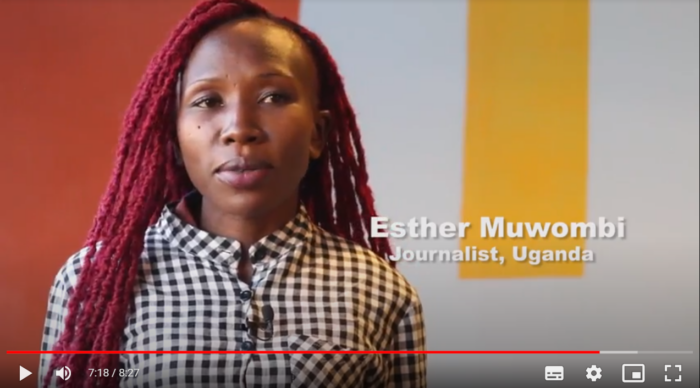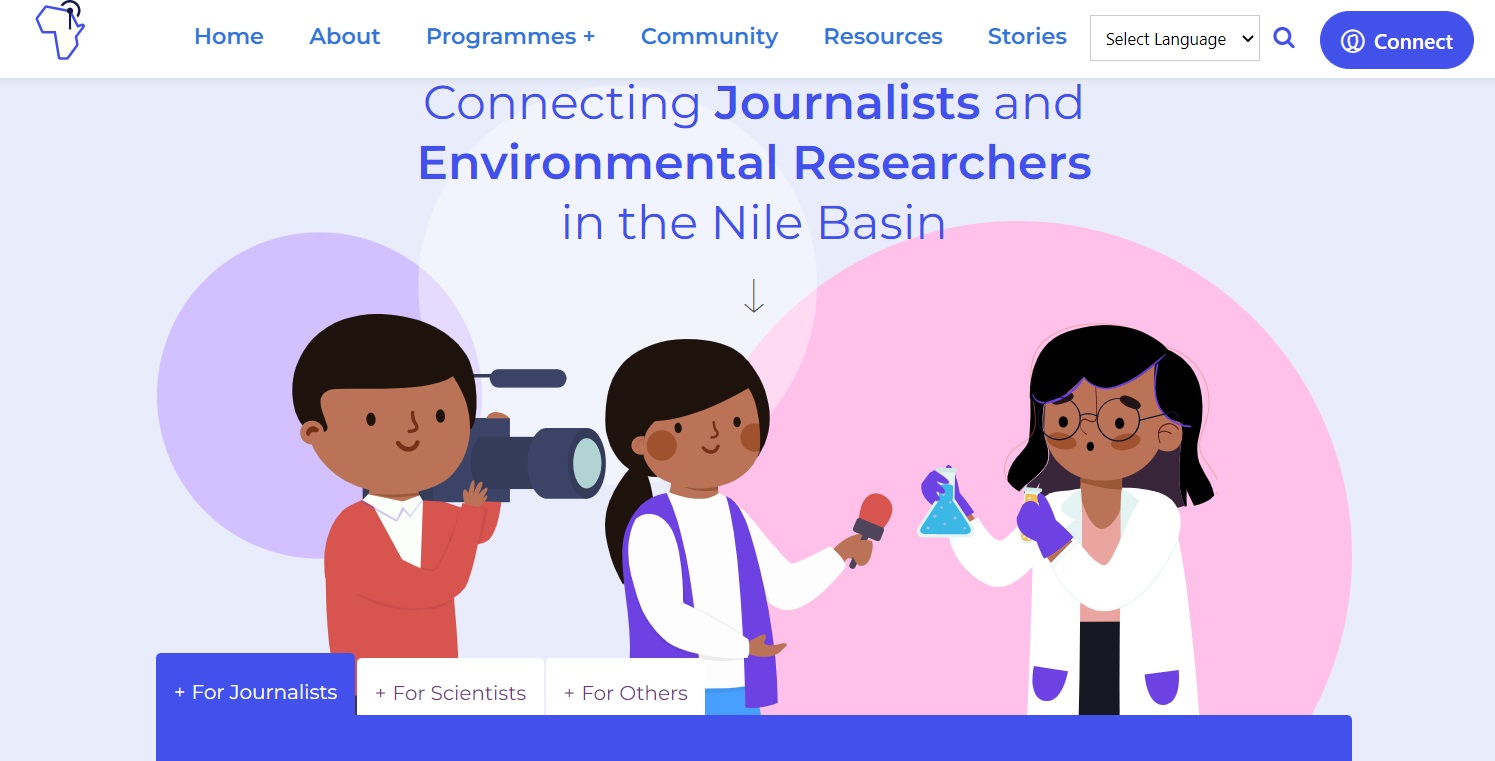InfoNile – When water journalists meet researchers
Nile Basin
“What surprised me is that there are a lot of scientists working on the Nile river. I didn’t know that. So as a journalist, I want to refer to their research,”
Konjit Teshome, Ethiopian journalist and radio host.
Since its inception in 2016, the project Open Water Diplomacy has brought together water journalists and researchers to hone their storytelling skills and create new narratives that facilitate transboundary connections between the 11 countries of the Nile basin.
Armed with reliable information from researchers, journalists are shaping the image of the Nile in the eyes of their audiences, hoping to influence ongoing negotiations over Nile waters. Given the sensitivity and the securitisation of Nile issues, correct information is crucial. Journalists are then able to produce fact-filled stories that can influence public debate and international conversations on transboundary waters.
One of them is Kajumba Godfrey, a Ugandan journalist and news editor. Kajumba has been trained and linked with scientists in the region by the InfoNile, a geojournalism project established with the support of the Open water Diplomacy through Water Journalist Africa.
“Through infoNile grants and training, I have learned data journalism. I can now report factual stories comprising data generated by scientists. But also, I have developed a network of scientists in the region who are now my sources” explains Kajumba.
It pays when journalists and researchers team up.
“It would end misunderstandings and misconceptions,” argues Wondwosen Michago Seide, an Ethiopian researcher, while commenting on the need to bridge the gap between media, policymakers, and scientists in the Nile basin. He spoke during a workshop on communicating water science for transboundary cooperation in the Nile basin, organised by Open Water Diplomacy in 2016 in Cairo, Egypt.
“We need to understand what journalists want” says Professor Frank Kansiime of Makerere University in Uganda. He was speaking during the same workshop in Egypt. He stressed that, in turn, “journalists need to understand what researchers want to communicate.” And he concluded by advocating for more regular join training and meetings between the two groups.
What did the journalists take home?
Indeed, one of the highlights of this project was training and networking event for journalists, photographers, and researchers from various countries in the Nile basin. This unique event occurred from 19-21 February 2019 in Delft, Netherlands.
Dubbed ‘Media, science, and water telling the story of the Nile Basin,’ the three-day practical workshop brought together journalists interested in stories from the Nile basin region with scientists carrying out exciting research in the area.
The event was a significant opportunity to explore how media and scientific communities can work together to better communicate scientific knowledge on water in Nile Basin. Journalists had the opportunity to discover new story ideas by connecting with scientists, whilst IHE Delft scientists met journalists interested in their research and got a better sense about which elements of their work can hook the attention of the media.
What surprised the journalists?

Speaking at this event, Konjit Tehsome, an Ethiopian journalist and radio host, says that Open Water Diplomacy has given her access to water researchers and water diplomats – potential sources of information on the Nile. “What surprised me is that there are a lot of scientists working on the river Nile. I didn’t know that. So as a journalist, I want to refer to their research,” says Teshome.

Ugandan journalist Esther Muwombi says she “never knew that there were so many [scientists] in the world concerned about water, especially the river Nile”. And for scientists and researchers, the project is not only helping them build trust with journalists, it’s enabling them to reach a wider audience.
Emanuele Fantini, senior lecturer and researcher in water politics and communication at IHE Delft, who heads the project, confirmed that it has enhanced trust and relationships between water journalists and scientists. “It has helped them [journalists] not only get access to scientific data and information about the Nile, water, and climate changes issues, but also to better understand how researchers think and work,” says Fantini. “This applies of course to researchers too: talking and getting acquainted with journalists, they got a clearer idea about how the media works, how to approach journalists, how to get their attention.”
“At the beginning the project we emphasized the differences between journalism and research” adds Fantini, “but later, by getting together we realized that these two professions also have similar aspirations – for instance representing reality – and often face similar challenges in terms of freedom of expression when dealing with sensitive issues like the sharing of Nile waters”.

The Nile Well
To keep the communication channel open, and to further enhance it, InfoNile has now launched a new project: NileWell.
This platform aims at fostering collaborations between water researchers and environmental journalist, to connect, share research and data, and build their capacity and knowledge in science and data-based journalism.
On the platform, the journalists can browse the library of published and up-to-date scientific reports on issues around the Nile river, and to use it as credible sources for their environmental stories and investigations Likewise, researchers can upload and share their research and publications on the platform, and can connect directly with journalists to share their work, and be featured in media reports and coverage.
Written by Fredrick Mugira
The project “Open Water Diplomacy. Media, science and transboundary cooperation in the Nile Basin” has been funded by the Water and Development Partnership program (Phase 2), which is financed by the Dutch Ministry of Foreign Affairs.
The project has been implemented by IHE Delft Institute for Water Education, in partnership with SciDev.Net, the University of Witwatersrand in South Africa, the Nile Basin Capacity Building Network, and Water Journalists Africa-InfoNile.

